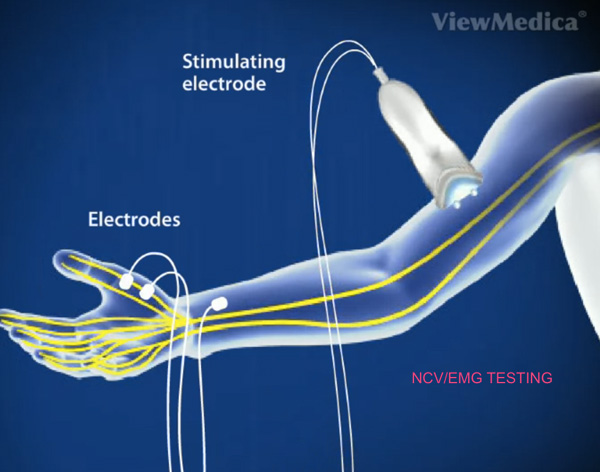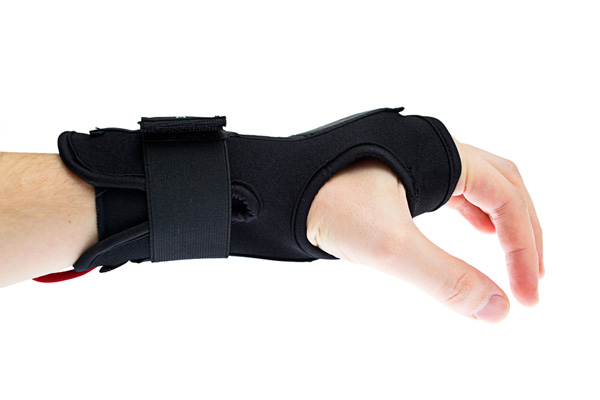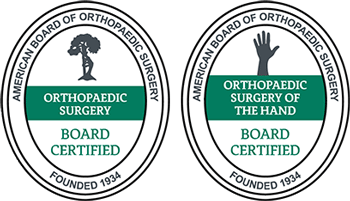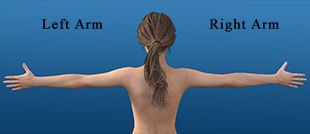Hand Numbness
What is hand numbness?
Hand numbness is an alteration in sensation in the hand. The sensory functions of the hand include touch and temperature. Normal sensation is either replaced by a complete lack of sensation; or a sensory disturbance occurs which can result in feelings of pins and needles, burning, stinging, or aching. Hand numbness can involve a portion of the hand or the digits or encompass the whole hand. Numbness in the hand may occur in one or both hands, depending on the cause.
What are the causes of hand numbness?

Damage, compression, or irritation of a nerve that supplies the hand is the cause of hand numbness. Although the numbness is localized to the hand, the compromised nerve could be located at any level of the nervous system. Damage to a specific portion of the brain, the spinal cord, or the nerves that travel down the arm to the fingertips can potentially cause hand numbness.
There are many, many medical conditions which injure the nerves that supply sensation to the hand. For example, ischemic or hemorrhagic stroke can injure the brain and cause hand numbness. Diabetes, alcoholism, and Vitamin B-12 deficiency wreak havoc on all of the nerves in the body and may be a contributing cause of hand numbness. Traumatic injury to the brain, cervical spine, brachial plexus, or the arm can result in hand numbness. Neurological diseases, such as multiple sclerosis, can present with hand numbness.
Compression of the nerves that supply sensation to the hand can be caused by a wide variety of things, including cervical radiculopathy, thoracic outlet syndrome, cubital tunnel syndrome, carpal tunnel syndrome, radial tunnel syndrome, ulnar tunnel syndrome, and from pressure caused by ganglion cysts of the hand. This compression may cause hand numbness and tingling.
What are the symptoms of hand numbness?
Hand numbness results in the inability to distinguish between hot and cold or to sense pain. Sensation may be altered and replaced by a feeling of pins and needles, burning, aching, or even shooting pain. This may result in clumsiness when using the hands for motor activity.
How is hand numbness diagnosed?
A careful history and physical exam will narrow down the root cause of hand numbness. Laboratory studies will be helpful in diagnosing global causes of numbness such as diabetes or vitamin deficiencies. Imaging studies of the brain, such as CT or MRI are useful in diagnosing numbness caused by stroke or multiple sclerosis. Likewise, imaging of the cervical spine may reveal a pinched nerve, or radiculopathy, as the cause.

If the physical exam suggests nerve compression, imaging studies along with Electromyogram and Nerve Conduction Studies may be helpful.
How is hand numbness treated?
Treatment of hand numbness is dependent on the cause of the numbness and may involve both non-surgical and surgical modalities.
Non-surgical
Medical cases of hand numbness can be treated by the appropriate specialist, for example, an internist would treat diabetes, and a neurologist would be enlisted to treat a patient with multiple sclerosis. Cases of nerve compression are best treated by a hand surgeon.

Many times, nerve compression does not require surgery. A trial of rest and immobilization with a splint is usually given, along with anti-inflammatory medications and possibly injections of steroid medications. The vast majority of patients will benefit from these conservative measures.
Surgical
Sometimes surgery is needed if the symptoms are severe or disabling, or do not respond to conservative treatment. Surgery is used to relieve pressure on the nerve caused by entrapment in a tunnel, such as with carpal tunnel syndrome; or by encroachment by a tumor, such as a ganglion cyst. There are many types of surgical procedures available and the technique used depends on the location of the compressed nerve.
How can Dr. Knight help you with hand numbness?
Dr. Knight has extensive experience in the treatment of hand numbness. He will quickly work up your condition to determine the cause. If metabolic in origin, he will consult with internal medicine specialists to get you the care you need. If there is nerve compression, he will usually cure this with rest, splinting, medication and therapy. If necessary, he will perform minimally invasive surgery to relieve the pressure and prevent permanent damage from occurring.
Dr. Knight is one of the premier hand surgeons in Dallas. We invite you to visit him at our Southlake office or Dallas office today. You can also give us a call at (855) 558-4263 or contact us online to get your appointment set up.
(817) 382-6789
Disclaimer
HandAndWristInstitute.com does not offer medical advice. The information presented here is offered for informational purposes only. Read Disclaimer

























